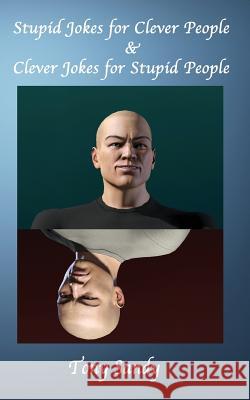Stupid Jokes for Clever People & Clever Jokes for Stupid People » książka
Stupid Jokes for Clever People & Clever Jokes for Stupid People
ISBN-13: 9781615001446 / Angielski / Miękka / 2017 / 92 str.
If you don't understand a joke, it's not funny. Alternatively, if you do and don't want to, it's also not funny but for a different reason. If we see something as offensive or insulting, it's because we don't want to be associated with it: For us, it has a personal meaning, which we'd rather not be reminded of thank you very much and so go into an automatic, paranoid defense reaction, in order to block it out of our conscious awareness. If we see it as a joke, it's because we interpret it as meaningless, harmless, non-embarrassing – that is we don't fear it as disclosure of our personal life or history. You have to speak a language and understand it's cultural heritage, to laugh at a joke. Only slapstick is universal humour because it is visual (composed of body language) and emotional (tone of voice indicators). A good joke hides the punchline, so that you are surprised by its revelation – much as you would be if you accidentally stumbled over a cliff edge but with less permanent damage.











